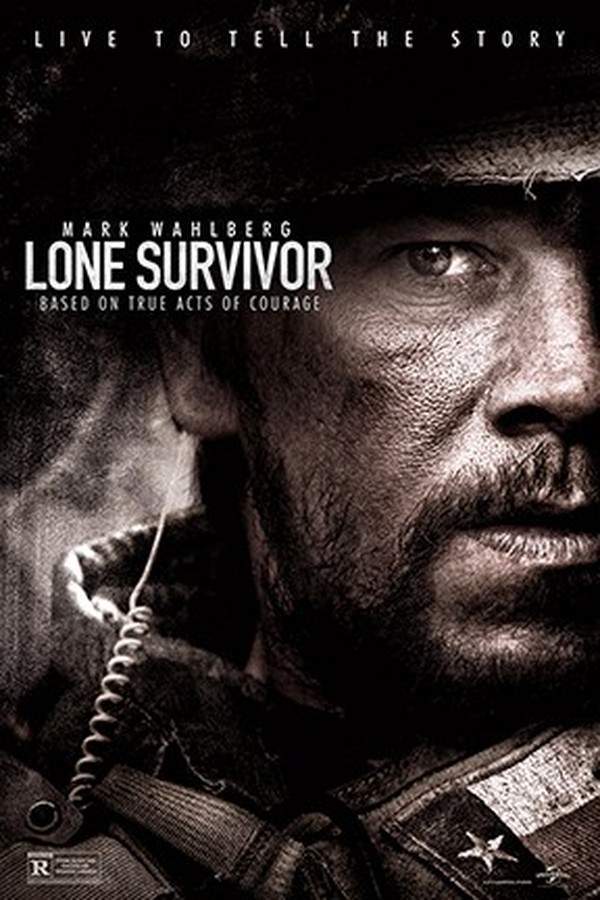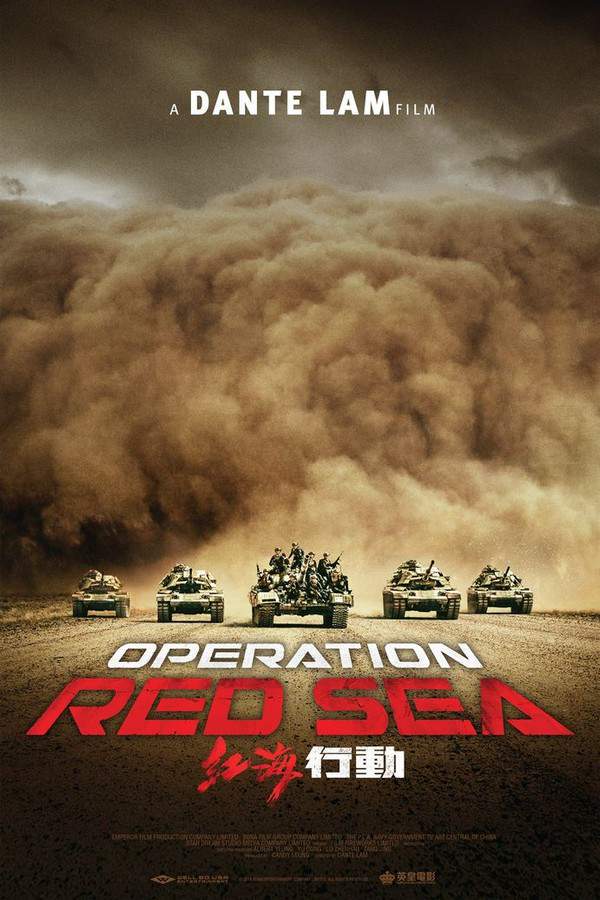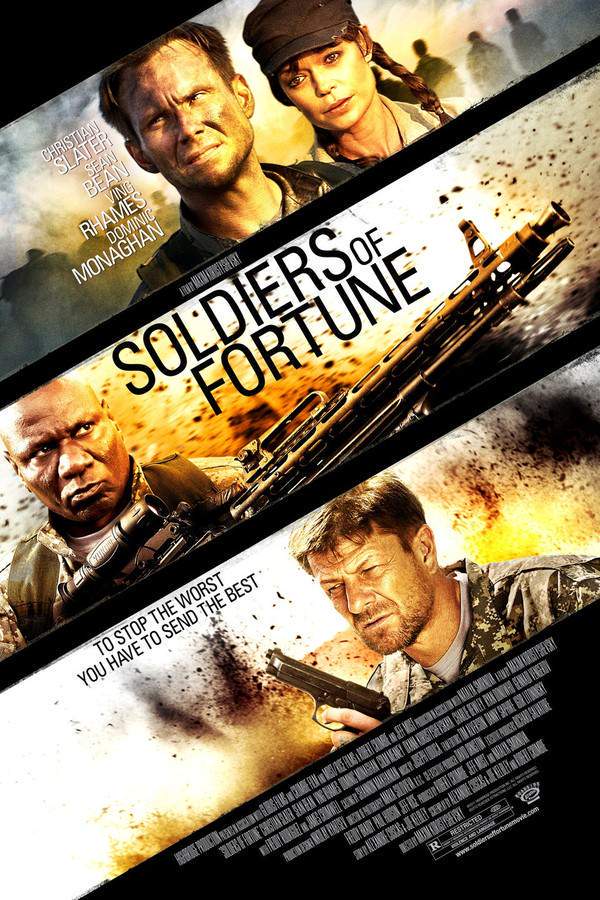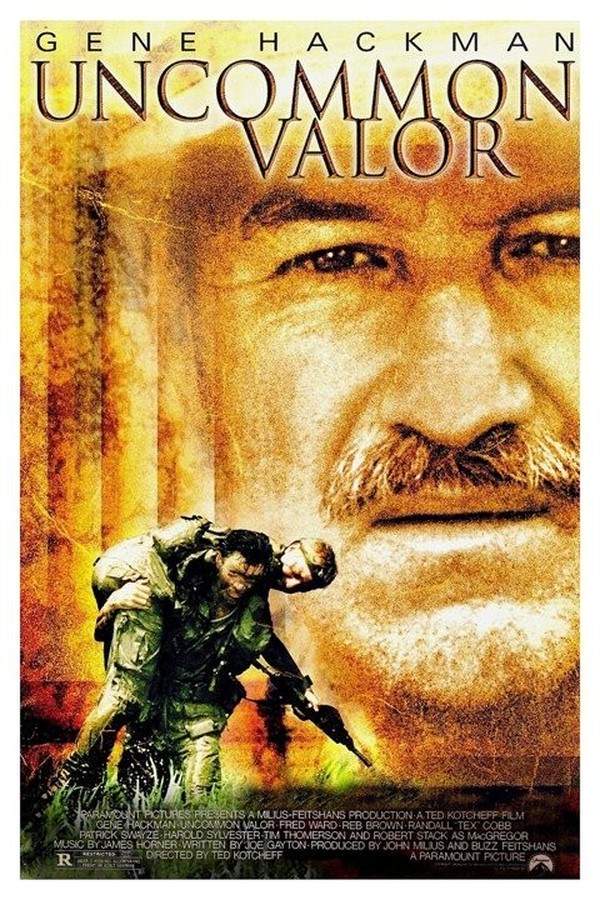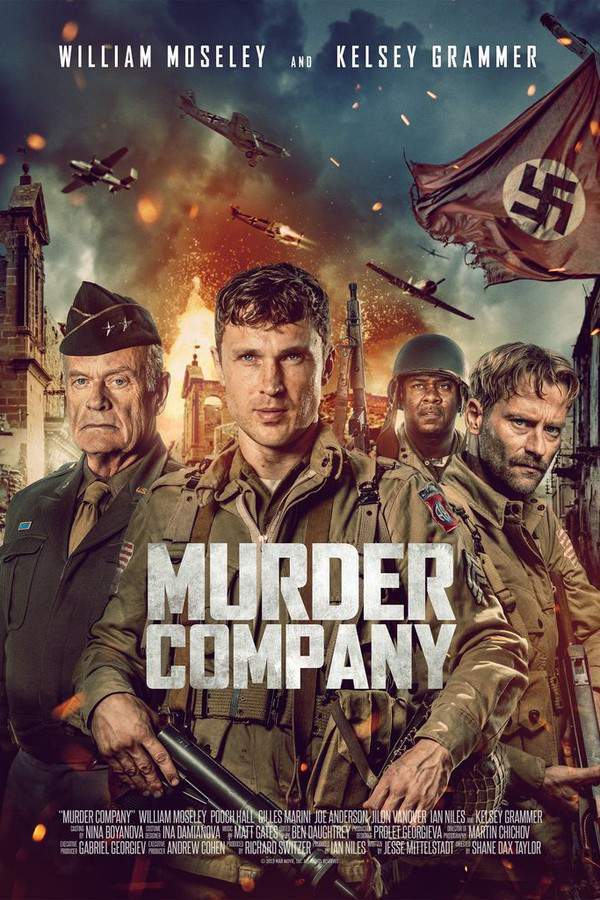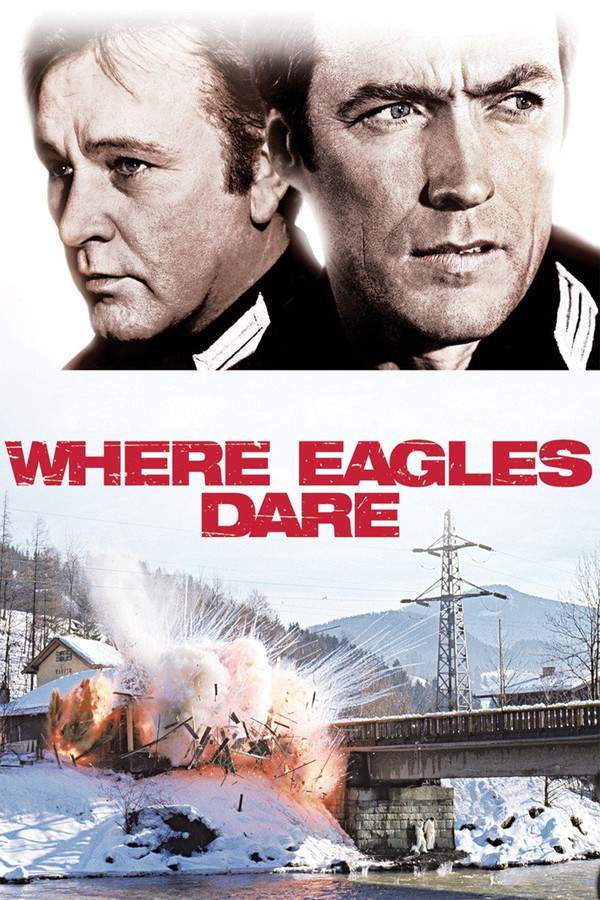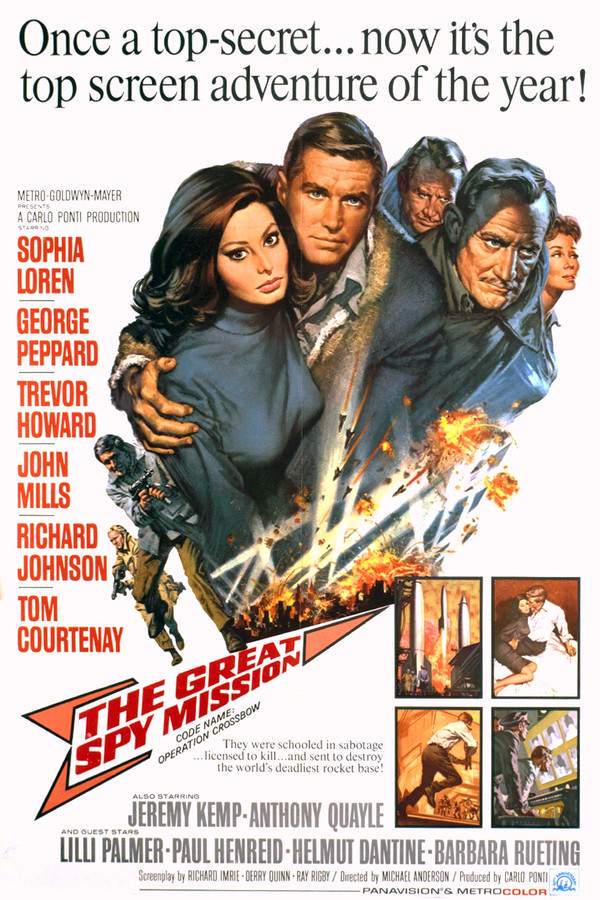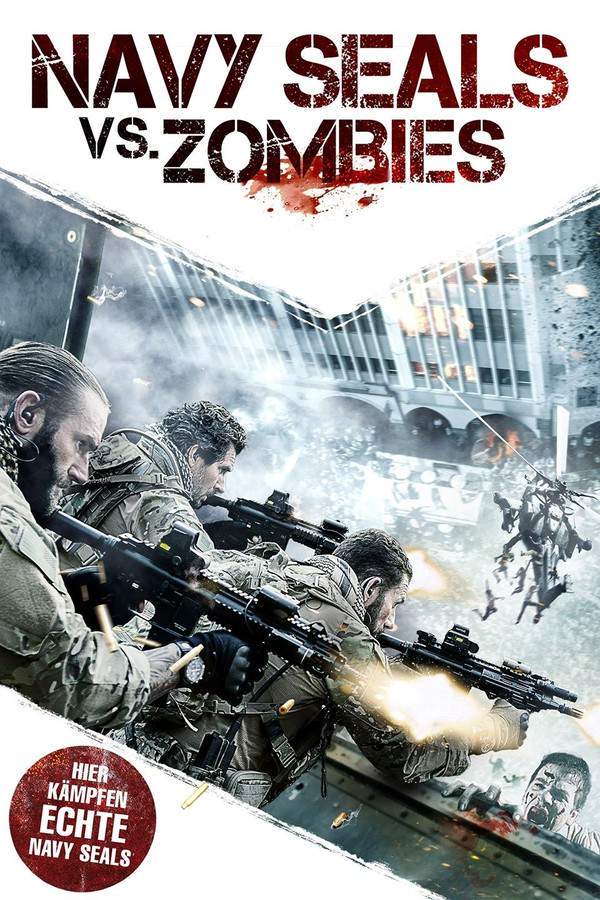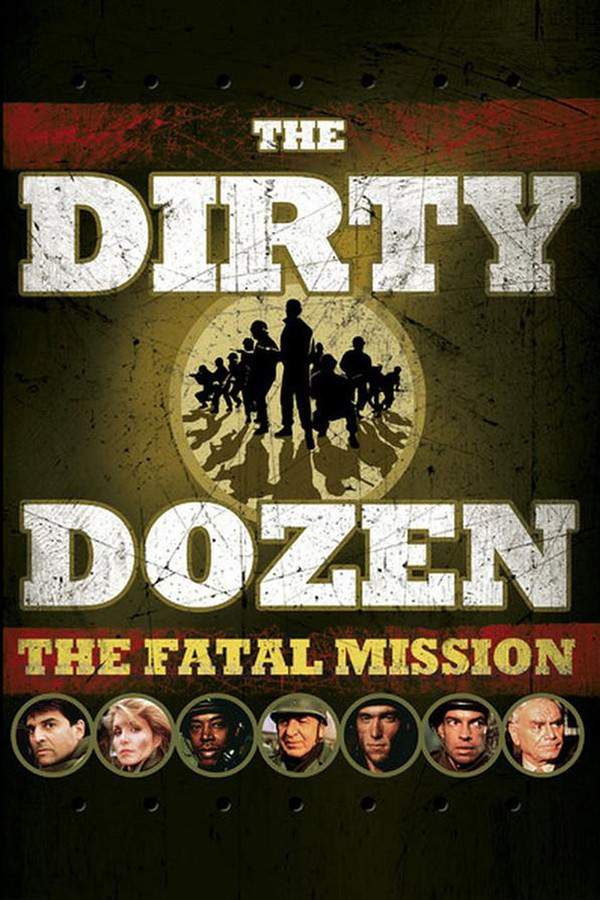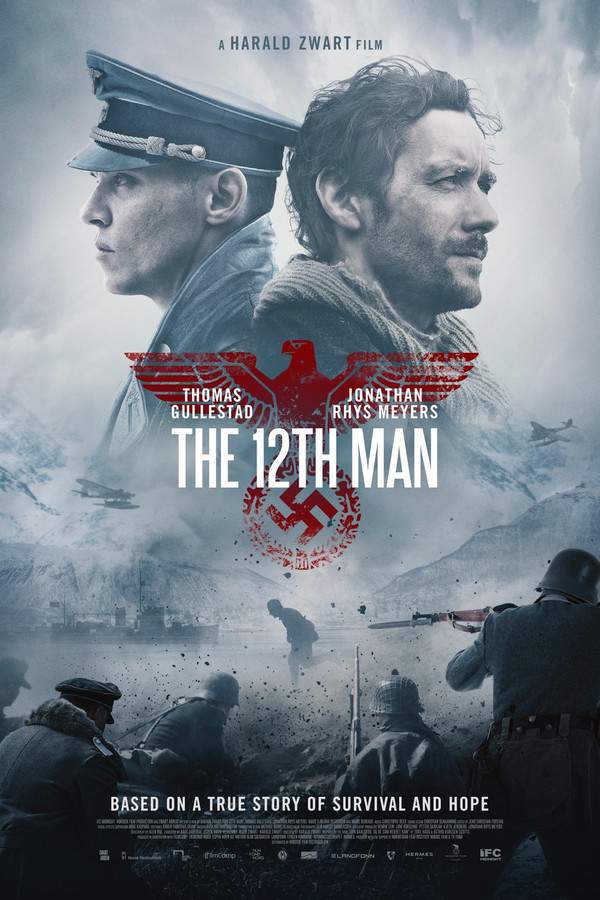
The Dirty Dozen: Next Mission
Year: 1985
Runtime: 95 mins
Language: English
Director: Andrew V. McLaglen
Back in action and more lethal than before, Major Reisman is coerced into leading another dangerous operation, assembling a team of convicted soldiers facing death sentences or long imprisonments. Their objective: infiltrate enemy lines to eliminate a high‑ranking Nazi general who is plotting to assassinate Hitler.
Warning: spoilers below!
Haven’t seen The Dirty Dozen: Next Mission yet? This summary contains major spoilers. Bookmark the page, watch the movie, and come back for the full breakdown. If you're ready, scroll on and relive the story!
The Dirty Dozen: Next Mission (1985) – Full Plot Summary & Ending Explained
Read the complete plot breakdown of The Dirty Dozen: Next Mission (1985), including all key story events, major twists, and the ending explained in detail. Discover what really happened—and what it all means.
In September 1944, in German-occupied France, Gen. Dietrich [Wolf Kahler] hatches a second, guarded attempt to strike at Hitler, hoping to tilt the balance of the war by removing a symbol of Nazi leadership. On the other side of the channel, Maj. John Reisman [Lee Marvin] is pulled from a chain of command chastisements and thrust into a mission that will test his resolve and redefine what a “suicide mission” can mean. Worden [Ernest Borgnine], a seasoned Allied commander, learns of the plot through the French Resistance, and his concern grows: if Dietrich succeeds, German commanders might press on regardless, making Hitler’s fate the hinge to every future decision.
Worden’s fear—paired with a quiet belief that Hitler’s flaws have become a kind of iffy advantage for the Allied cause—propels him to assemble a group of incarcerated soldiers for a dangerous, high-stakes assignment. Reisman, determined and resourceful, agrees to lead the operation, but only if he can handpick the men who will carry it out. He enlists the help of MP Sergeant Clyde Bowren [Richard Jaeckel], and together they comb through Marston Tyne Military Prison to select a dozen men who can be molded into a makeshift unit capable of an audacious turn of fate.
The initial list reads like a cross-section of trouble and talent: Sixkiller, Dregors, Deutsch, Valentine, Wright, Wells, Perkins, Le Clair, Rosen, Anderson, Baxley, Reynolds and Sanders. Reisman and Bowren pare this baker’s dozen down to twelve after a quick act of discipline that cements the mission’s uncompromising tone. The men are brought together at a disused train station to begin training that blends discipline with improvisation, a process that reveals each member’s strengths and weaknesses, while testing Reisman’s leadership and the group’s fragile camaraderie.
As training deepens, the team faces a number of setbacks and internal frictions. During a German air raid, Valentine attempts an escape, but Sixkiller and Wells move decisively to deter him and bring him back into line, underscoring the fragile balance between rebellion and obedience in a crowd of condemned men. The next phase of the plan sees the Dozen traveling undercover behind enemy lines, disguised as elite German troops, with the audacious aim of intercepting a critical supply train. To maintain cover, Dregors is made up to appear wounded, his hands left bare, a fact that nearly gives them away when a Gestapo agent spots the discrepancy and raises the alarm.
A tense chase follows when the group must flee a pursuing force and swap a stolen vehicle for a more reliable ride. The bus they intend to use is compromised by the pursuit, and a violent crash costs them two more teammates before they can even get back on schedule. The loss intensifies the mission’s stakes and forces Reisman to improvise, even as the Dozen press forward with a grim determination to complete their task.
A pivotal moment occurs when the Dozen encounter a French farmer and a local moral test: Reisman orders Le Clair to communicate in English to the baffled farmer, who resists taking their German vehicle. The farmer’s hesitation serves as a reminder that not every ally is clearly visible, and Reisman’s team must press on with patience and persistence. A missing Mercedes-Benz, a cooling-down vehicle, and the looming clock all serve to underscore the mission’s relentless pressure.
Back on track, the Dozen take refuge in a church and discuss the next leg of their plan. They will reach the train, but the mood turns somber as disagreements flare. Dregors, who has shown flashes of independence, contemplates disobeying orders and shooting Hitler instead of Dietrich. Reisman uses a steady hand to steer the group back toward the original objective, arguing that the true objective is to strike at Dietrich’s regime and seize the opportunities the mission presents. The turning point arrives when Reisman reveals a lie: there is no gold aboard the train, a revelation that tests loyalty and trust but also solidifies a shared purpose among the remaining dozen.
With renewed resolve, the group moves toward their target, yet another clash with German forces unfolds. On the train, Dietrich’s long-time deputy, Colonel Schmidt, becomes suspicious of Dietrich’s motives and is executed by the dictator when the truth about Schmidt’s intentions surfaces. The Dozen take shelter as the train approaches a depot teeming with German troops, and the truth about the operation’s real motive surfaces: the gold story was a ruse, a psychological ploy to keep the Dozen united.
In a dramatic sequence, Dregors chooses to act—killing Dietrich with a sniper rifle after Reisman convinces him to go through with the plan—while the chaos of rescue and pursuit erupts around them. Hitler’s arrival in a car becomes a desperate escape as officers scramble to cover the retreat while Dozen fighters unleash a relentless assault on the train. The result is a dramatic hoard of spoils: priceless paintings and Beethoven’s original piano become the shocking trove that awaits the soldiers’ discovery and escape.
The escape itself is a tense sprint to the plane that Hitler had arrived on, a risky dash through gunfire and collapsing structures. In the end, only a handful of the Dozen survive the perilous journey back to England: Reisman, Dregors, Perkins, Valentine, and Wells are left standing as their comrades fall. Dregors’ wounds prove fatal on the return voyage, but a briefcase tucked under a seat—the real cache of intelligence and jewels—confirms that their risky mission delivered not just a symbolic hit on Nazi leadership but tangible, high-value intelligence as well.
The return to England is no easy victory. Still in uniform and met with suspicion by a wary farmer who mistakes them for Nazis, the rugged group is brought to a halt until Reisman’s command of English clears the air and reveals their true identities. The farmer, sensing a glimmer of humanity behind the uniforms, points them toward a nearby pub where they can finally unwind. Reisman, a steady captain in the storm of war, offers to buy his men a round, sealing a moment of quiet camaraderie after a campaign defined by danger, deception, and grit.
-
Gen. Worden [Ernest Borgnine] and the Allied leadership are presented as the moral compass behind the mission, guiding Reisman and the Dozen toward a plan that blends audacious risk with a stubborn faith in collective courage.
-
Maj. John Reisman [Lee Marvin] is the central figure, whose hard-edged pragmatism carries the operation from a bold concept to a hard-won, if morally complex, victory.
-
The Dozen, a mosaic of sinners and survivors, each bring a distinct texture to the mission, and their fates underscore the costs and consequences of war, loyalty, and risk.
-
The film’s climax binds action to consequence, as the Dozen win the dual prize of eliminating a key symbol of Nazi command and acquiring a treasure trove of intelligence and art that will shape the war’s course.
Note: For actors not listed in the provided cast, no links are included. If you’d like, I can tailor this to emphasize particular characters or adjust the emphasis of certain scenes to better fit your site’s style.
Last Updated: October 09, 2025 at 14:41
Explore Movie Threads
Discover curated groups of movies connected by mood, themes, and story style. Browse collections built around emotion, atmosphere, and narrative focus to easily find films that match what you feel like watching right now.
Suicide Squad Movies Like The Dirty Dozen: Next Mission
Stories of condemned outlaws given one last chance at redemption through a deadly mission.If you enjoyed The Dirty Dozen: Next Mission, you'll find similar movies here featuring desperate suicide missions undertaken by flawed teams. These films share a tense, gritty atmosphere, heavy emotional weight from significant casualties, and a focus on leadership, redemption, and the high cost of war.
Narrative Summary
The narrative follows a linear structure: assembling a team of condemned individuals, a grueling training period that tests their loyalty and skills, the execution of a near-impossible mission behind enemy lines, and a climax marked by heavy casualties. The journey is as much about the formation of a fragile 'found family' as it is about achieving the objective.
Why These Movies?
These movies are grouped by their core premise of a high-risk mission carried out by an unwilling team of outcasts. They share a tense, grim mood, fast pacing driven by mission deadlines, and a bittersweet or heavy ending where success comes at great personal cost. The emotional core revolves around redemption, sacrifice, and leadership under extreme pressure.
Gritty War Infiltration Films Like The Dirty Dozen: Next Mission
Intense war stories focused on covert operations deep behind enemy lines, where discovery means death.Discover movies similar to The Dirty Dozen: Next Mission that focus on tense, high-stakes infiltration missions during war. These films share a fast pace, high intensity, and a suspenseful, gritty tone as characters operate deep behind enemy lines, facing constant danger and the grim reality of combat.
Narrative Summary
The narrative pattern involves a specialized team being inserted into hostile territory with a precise objective, such as assassination or sabotage. The story builds suspense through close calls, narrow escapes, and the ever-present threat of exposure. The pacing is fast and urgent, often culminating in a chaotic and violent confrontation when the mission is compromised.
Why These Movies?
These films are united by their immersive depiction of covert warfare. They generate a cohesive vibe through a tense tone, fast pacing that mirrors the urgency of the mission, and high intensity from life-or-death stakes. The shared experience is one of sustained suspense and the grim, determined atmosphere of operating within the enemy's grasp.
Unlock the Full Story of The Dirty Dozen: Next Mission
Don't stop at just watching — explore The Dirty Dozen: Next Mission in full detail. From the complete plot summary and scene-by-scene timeline to character breakdowns, thematic analysis, and a deep dive into the ending — every page helps you truly understand what The Dirty Dozen: Next Mission is all about. Plus, discover what's next after the movie.
The Dirty Dozen: Next Mission Timeline
Track the full timeline of The Dirty Dozen: Next Mission with every major event arranged chronologically. Perfect for decoding non-linear storytelling, flashbacks, or parallel narratives with a clear scene-by-scene breakdown.

Characters, Settings & Themes in The Dirty Dozen: Next Mission
Discover the characters, locations, and core themes that shape The Dirty Dozen: Next Mission. Get insights into symbolic elements, setting significance, and deeper narrative meaning — ideal for thematic analysis and movie breakdowns.

The Dirty Dozen: Next Mission Spoiler-Free Summary
Get a quick, spoiler-free overview of The Dirty Dozen: Next Mission that covers the main plot points and key details without revealing any major twists or spoilers. Perfect for those who want to know what to expect before diving in.

More About The Dirty Dozen: Next Mission
Visit What's After the Movie to explore more about The Dirty Dozen: Next Mission: box office results, cast and crew info, production details, post-credit scenes, and external links — all in one place for movie fans and researchers.

Similar Movies to The Dirty Dozen: Next Mission
Discover movies like The Dirty Dozen: Next Mission that share similar genres, themes, and storytelling elements. Whether you’re drawn to the atmosphere, character arcs, or plot structure, these curated recommendations will help you explore more films you’ll love.
Explore More About Movie The Dirty Dozen: Next Mission
The Dirty Dozen: Next Mission (1985) Scene-by-Scene Movie Timeline
The Dirty Dozen: Next Mission (1985) Movie Characters, Themes & Settings
The Dirty Dozen: Next Mission (1985) Spoiler-Free Summary & Key Flow
Movies Like The Dirty Dozen: Next Mission – Similar Titles You’ll Enjoy
The Dirty Dozen (1967) Plot Summary & Ending Explained
The 12th Man (2018) Story Summary & Characters
Where Eagles Dare (1969) Plot Summary & Ending Explained
Wild Geese II (1985) Ending Explained & Film Insights
The Dirty Dozen: The Deadly Mission (1987) Ending Explained & Film Insights
The Misfit Brigade (1987) Detailed Story Recap
The Dirty Dozen: The Fatal Mission (1988) Spoiler-Packed Plot Recap
The Great Escape II: The Untold Story (1000) Plot Summary & Ending Explained
Twelve O’Clock High (1949) Ending Explained & Film Insights
Battle of the Commandos (1969) Full Summary & Key Details
Ten Seconds to Hell (1959) Movie Recap & Themes
Play Dirty (1969) Ending Explained & Film Insights
Dirty Heroes (1967) Movie Recap & Themes
13 Rue Madeleine (1947) Complete Plot Breakdown
12 Winter (2009) Plot Summary & Ending Explained

